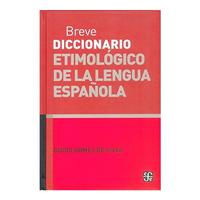12 - La raíz de la palabra "familia"
|корінь||||
12 - Die Wurzel des Wortes "Familie".
12 - The root of the word "family".
12 - La racine du mot "famille".
12 - La radice della parola "famiglia".
12 - žodžio "šeima" šaknis.
12 - Rdzeń słowa "rodzina".
12 - A raiz da palavra "família".
12 - Корень слова "семья".
12 - Roten till ordet "familj".
12 - "Aile" kelimesinin kökü.
LOCUTORA
жінка що
ANNOUNCER
A ver si sabes, amigo.
Y si no sabes, te lo digo.
And if you don't know, I tell you.
¿Qué significa la palabra “familia”?
HOMBRE
¿Cómo dijo?
What did you say?
¿Familia?
Family?
LOCUTORA
Exacto.
точно
Familia.
HOMBRE
Eso lo sabe todo el mundo.
Everyone knows that.
Familia significa el padre, la madre, los hijos, los abuelos...
|||||||||grandparents
|means||||||||
Family means father, mother, children, grandparents ...
LOCUTORA
Sí, pero, ¿qué significa la palabra, la palabrita “familia”?
|||||||слово|
Yes, but what does the word, the word "family" mean?
HOMBRE
Ah, eso sí que no lo sé.
Ah, I don't know that.
LOCUTOR
“Familia” viene del latín “famulus”.
||||servant
||||слуга
"Family" comes from the Latin "famulus".
Y famulus significa sirviente, esclavo.
|||servant|slave
|||слуга раб|раб
And famulus means servant, slave.
LOCUTORA
La familia, en la vieja Roma,
|||the||Rome
The family, in old Rome,
era el conjunto de parientes, criados, esclavos, esposa, hijos e hijas,
||||membres de la famille|serviteurs|||||
||||||slaves||||
||група||родичі|слуги|раби|дружина|||дочки
it was the set of relatives, servants, slaves, wife, sons and daughters,
que “pertenecían” al padre, al patriarca.
|belonged||||patriarch
|належали||||батько пат
that they "belonged" to the father, to the patriarch.
LOCUTOR
диктор
La familia era el patrimonio, la propiedad, del padre.
||||heritage||property||
||||спадщина||власність||
The family was the patrimony, the property, of the father.
LOCUTORA
Padre y patrón era lo mismo.
||boss|||
||господар|||
Father and patron was the same.
PADRE
¡Usted se calla!...
You|you|be quiet
||мовчите
You shut up! ...
Y usted también.
And you too.
Aquí mando yo.
|commande|
|command|
|я командую|
I rule here.
Aquí hablo yo.
Here I speak.
LOCUTOR
El padre-patrón tenía derecho a todo.
||boss||||
||глава сім'ї||право||
The patron-father was entitled to everything.
Podía comprar y vender esclavos.
|to buy|||
|||продавати|рабів
He could buy and sell slaves.
LOCUTORA
Podía abusar de las sirvientas, de las hijas, de cualquier mujer.
|to abuse|||maids||||of||
|зловживати|||служниць||||||
I could abuse maids, daughters, any woman.
LOCUTOR
Disponía del dinero
Disposait de l'argent||
Мав||
I had the money
y no daba cuenta de gastos e ingresos a nadie, menos a su esposa.
|no||||expenses||||||||
||gave|||витрати||доходи||||||дружина
and did not account for expenses and income to anyone, except his wife.
LOCUTORA
¿Disponía o dispone?
Disposait ou dispose?||Dispose ou disposait
Did you have||does have
мав||власник
Did you have or do you have?
¿Ese modelo de familia es cosa del pasado?
That|model||||||
|модель||||||минуле
Is that family model a thing of the past?
¿O sigue existiendo hoy, en América Latina y en otros continentes?
||existing||||||||continents
|does it|існує||||||||континентах
Or does it still exist today, in Latin America and on other continents?
LOCUTOR
Soñamos con familias sin amos ni esclavas, sin patriarcas ni sirvientes.
We dream|||love|||slaves||patriarchs||servants
Мріємо||||господарів||рабинь||патріархів||слуг
We dream of families without masters or slaves, without patriarchs or servants.
LOCUTORA
Familias que sean comunidades democráticas.
|||communities|democratic
|||спільноти|демократичними
Families that are democratic communities.
LOCUTORA
La raíz de las palabras.
|корінь|||
Una producción de Radialistas Apasionadas y Apasionados.
|||Радіоак|Пристрасні||

